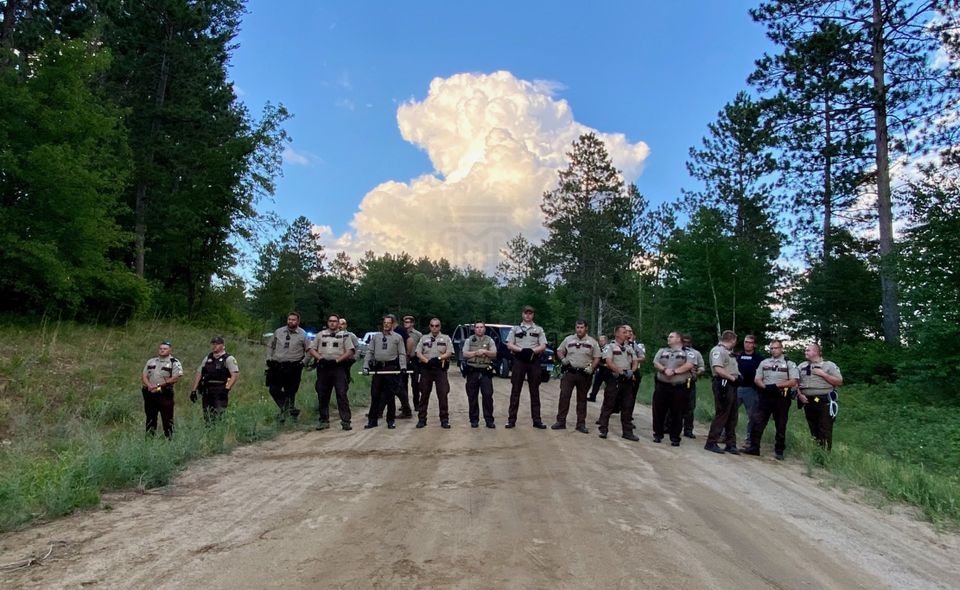Damages: Judge Grants Restraining Order Against Minnesota County Sheriff in Line 3 Fight

By Karen Savage
A judge on Friday granted a temporary restraining order prohibiting the Hubbard County Sheriff’s Office from blocking vehicular access to Namewag Camp, an Indigenous woman and two-spirit-led camp opposing Enbridge’s Line 3 pipeline.
In the order Hubbard County District Court Judge Jane M. Austad ordered the sheriff’s office to stop “barricading, obstructing, or otherwise interfering with access to the property” and prohibited deputies from stopping vehicles, issuing citations, or arresting or threatening to arrest individuals for driving on the driveway.
Winona LaDuke, Tara Houska, and two additional plaintiffs filed a lawsuit last week alleging that the Hubbard County Sheriff’s Office had illegally conducted a 2-day blockade of the camp driveway and was continuing to illegally issue citations to Indigenous water protectors and their allies for using the driveway.
The driveway runs through a 150-foot strip of land owned by Hubbard County. Winona LaDuke, who previously owned the land where the camp is now located, was granted an easement from the county in 2018 to use the driveway, which has been in use for more than 90 years.
At issue is whether that easement is still valid.
At a hearing held Thursday in Hubbard County District Court, plaintiffs’ attorney Jason Paul Steck told the court that the current property owners were simply seeking to resolve the easement dispute without the area being “militarized” by law enforcement.
“This has to be the most aggressive response to an easement dispute I’ve ever heard of,” Steck said, referring to two-day blockade by the sheriff’s office that prevented individuals from going into or out of the property.
Assistant Hubbard County Attorney Anna Emmerling argued that actions by the sheriff’s office were part of a larger effort to monitor opposition to Line 3.
The judge, however, was not persuaded, ruling that the driveway blockade and subsequent issuing of citations by the sheriff’s office substantially violated the plaintiffs’ right to use and enjoy the property.
“This action is about an easement. There is no showing that the law is being broken on the disputed easement,” Austad wrote in the order.





